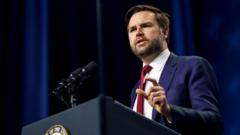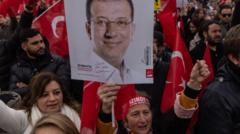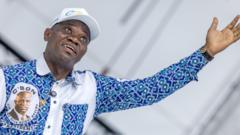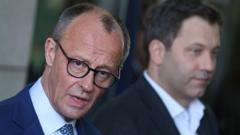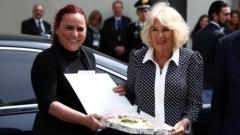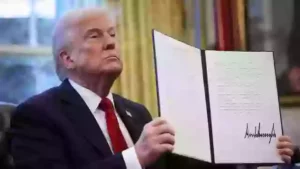The tensions over international influence on German democracy spotlight the fragile political landscape.
Chancellor Scholz Condemns U.S. Vice President for Interference in German Elections

Chancellor Scholz Condemns U.S. Vice President for Interference in German Elections
German Chancellor issues strong statement against JD Vance's remarks regarding the far-right AfD party.
Chancellor Olaf Scholz of Germany has expressed his strong disapproval regarding U.S. Vice President JD Vance's recent comments during the Munich Security Conference. Scholz accused Vance of unacceptable interference in Germany's upcoming elections by endorsing the hard-right Alternative for Germany (AfD), a party that has faced criticism for downplaying the historical atrocities committed by the Nazis.
In a striking address, Scholz emphasized the importance of maintaining a commitment to "never again" allow Germany to fall under fascist leadership reminiscent of the Holocaust. His statement came just one day after Vance urged German officials to dismantle the so-called firewall preventing the AfD from participating in the federal government.
Scholz articulated that the trivialization of Nazi crimes, which he believes the AfD embodies, is incompatible with Germany’s democratic values. He specifically called out Vance's remarks, saying, "Where our democracy goes from here is for us to decide," rejecting any notions of external directives dictating how Germany should govern itself.
The exchange highlights the complex relationship between the U.S. and Germany, particularly regarding domestic affairs and historical context. Scholz’s remarks serve as a reminder of the sensitive issues surrounding the legacy of Nazism and the ongoing debates about right-wing extremism in Europe.
In a striking address, Scholz emphasized the importance of maintaining a commitment to "never again" allow Germany to fall under fascist leadership reminiscent of the Holocaust. His statement came just one day after Vance urged German officials to dismantle the so-called firewall preventing the AfD from participating in the federal government.
Scholz articulated that the trivialization of Nazi crimes, which he believes the AfD embodies, is incompatible with Germany’s democratic values. He specifically called out Vance's remarks, saying, "Where our democracy goes from here is for us to decide," rejecting any notions of external directives dictating how Germany should govern itself.
The exchange highlights the complex relationship between the U.S. and Germany, particularly regarding domestic affairs and historical context. Scholz’s remarks serve as a reminder of the sensitive issues surrounding the legacy of Nazism and the ongoing debates about right-wing extremism in Europe.



